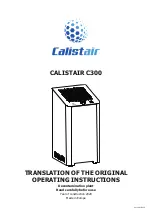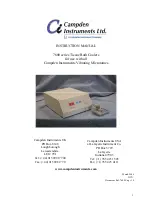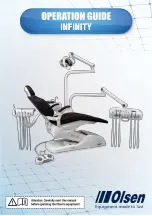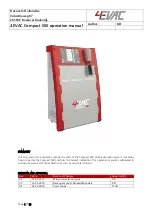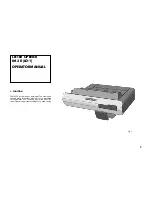
Doc no: 430-041-01
22 of 64
The purpose of the patch test is to measure these errors and derive compensation values for Latency,
Pitch, Roll, and Yaw. The following table (Table 4-1) describes the parameters affected by the various
rotations and latency:
Parameter
Affects
Latency
Sounding position
Roll
Sounding position and depth
Pitch
Sounding position and depth
Yaw
Sounding position
Table 4-1
A patch test should ideally be performed as follows:
•
Upon commissioning of a new system
•
After long periods of inoperability
•
Every time the MBES head has been removed and reinstalled
•
Whenever the MRU, heading reference or positioning system has been removed and reinstalled.
During data acquisition, the Surveyor should compare the overlapping outer beams of adjacent swaths and
to check for any trend of curvature upward or downward of each ping. This may suggest a sound velocity
issue.
Most MBES processing packages will have patch test functionality. Although not essential, it is recommended
to remove any legacy corrections in the navigation system prior to commencement of the patch test.
The data may be acquired in any order, but should be processed and applied as follows:
1. Latency
2. Apply latency offset, then process
roll
test
3. Apply roll, then process
pitch
test
4. Apply roll, then process
yaw
test
Summary of Contents for DT101Xi
Page 35: ...Doc no 430 041 01 35 of 64 APPENDIX A DT101Xi DT102Xi SPEC SHEETS DT101Xi...
Page 36: ...Doc no 430 041 01 36 of 64...
Page 37: ...Doc no 430 041 01 37 of 64...
Page 38: ...Doc no 430 041 01 38 of 64...
Page 39: ...Doc no 430 041 01 39 of 64 DT102Xi...
Page 40: ...Doc no 430 041 01 40 of 64...
Page 41: ...Doc no 430 041 01 41 of 64...
Page 42: ...Doc no 430 041 01 42 of 64...
Page 52: ...Doc no 430 041 01 52 of 64 Figure 6 7 Jumpers for Heading and PPS Selection...
Page 56: ...Doc no 430 041 01 56 of 64 Figure 6 8 Power Supply Voltage Option...































